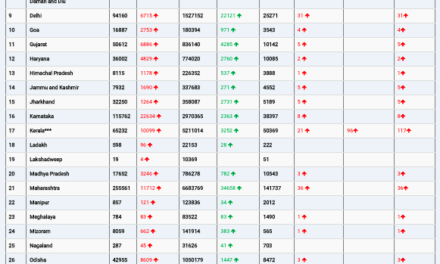Researchers at Penn State College of Medicine have developed a groundbreaking artificial intelligence (AI) algorithm that promises to significantly improve the early prediction and treatment of autoimmune diseases. These diseases, characterized by the immune system mistakenly attacking the body’s own cells and tissues, have long posed challenges in early diagnosis and effective treatment. The new algorithm delves into the genetic underpinnings of these conditions, providing a more accurate model of gene expression and regulation associated with specific autoimmune diseases. The study, published today in Nature Communications, highlights the algorithm’s ability to identify 26% more novel gene and trait associations than existing methodologies.
“We all carry some DNA mutations, and we need to figure out how any one of these mutations may influence gene expression linked to disease so we can predict disease risk early. This is especially important for autoimmune disease,” said Dajiang Liu, distinguished professor, vice chair for research, and director of artificial intelligence and biomedical informatics at Penn State College of Medicine, and co-senior author of the study. “If an AI algorithm can more accurately predict disease risk, it means we can carry out interventions earlier.”
Genetic variations play a crucial role in disease development by influencing gene expression, the process by which DNA information is converted into functional products like proteins. The amount a gene is expressed can significantly affect disease risk. Genome-wide association studies (GWAS), a popular method in human genetics research, can identify genome regions associated with diseases but struggle to pinpoint specific genes influencing disease risk. This is similar to sharing your location with a friend without precise location settings—the city is clear, but the exact address is not.
The research team introduced a method called EXPRESSO (EXpression PREdiction with Summary Statistics Only), which uses a sophisticated AI algorithm to analyze single-cell expression quantitative trait loci data. This type of data connects genetic variants to the genes they regulate. EXPRESSO also integrates 3D genomic data and epigenetics, which studies how genes are modified by environmental factors to influence disease. The team applied EXPRESSO to GWAS datasets for 14 autoimmune diseases, including lupus, Crohn’s disease, ulcerative colitis, and rheumatoid arthritis.
“With this new method, we were able to identify many more risk genes for autoimmune disease that actually have cell-type specific effects, meaning that they only have effects in a particular cell type and not others,” explained Bibo Jiang, assistant professor at Penn State College of Medicine and senior author of the study.
This new information has the potential to revolutionize therapeutic approaches for autoimmune diseases, for which current long-term treatments are often inadequate.
“Most treatments are designed to mitigate symptoms, not cure the disease. It’s a dilemma knowing that autoimmune disease needs long-term treatment, but the existing treatments often have such bad side effects that they can’t be used for long. Yet, genomics and AI offer a promising route to develop novel therapeutics,” said Laura Carrel, professor of biochemistry and molecular biology at Penn State College of Medicine and co-senior author of the study.
The team identified drug compounds that could reverse gene expression in cell types associated with autoimmune diseases. These included vitamin K for ulcerative colitis and metformin, typically prescribed for type 2 diabetes, for type 1 diabetes. These drugs, already approved by the FDA for other uses, could be repurposed to treat autoimmune diseases.
The researchers are now working with collaborators to validate their findings in laboratory settings and ultimately in clinical trials.
The study was co-led by Lida Wang, a doctoral student in the biostatistics program, and Chachrit Khunsriraksakul, who recently earned his doctorate in bioinformatics and genomics and his medical degree from Penn State. Other contributors from Penn State College of Medicine included doctoral and graduate students Havell Markus, Dieyi Chen, and Fan Zhang, and postdoctoral scholar Fang Chen. Xiaowei Zhan, associate professor at UT Southwestern Medical Center, also contributed.
The research was funded by the National Institutes of Health (grant numbers R01HG011035, R01AI174108, and R01ES036042) and the Artificial Intelligence and Biomedical Informatics pilot grant from Penn State College of Medicine.












